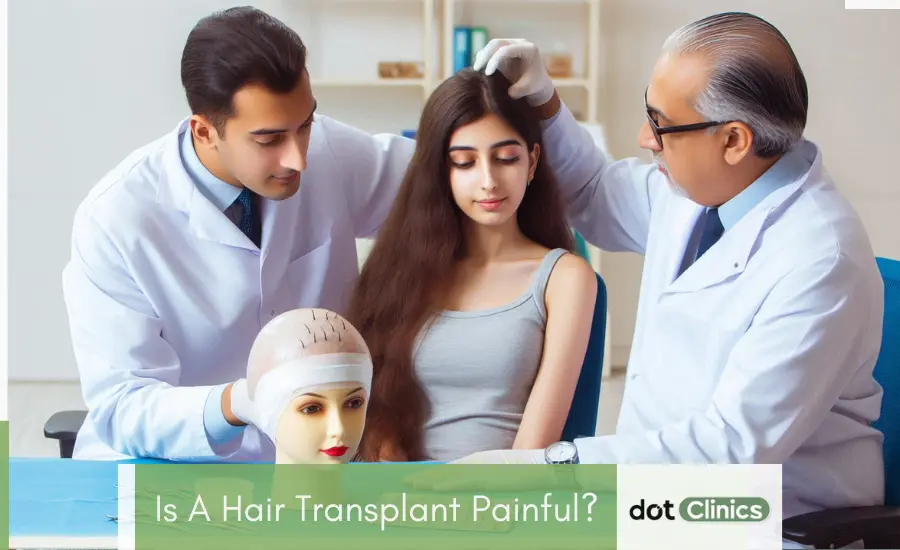Thinking about getting a hair transplant?
One of the biggest questions you might have is, “How long does it hair transplant last?”
A hair transplant is a popular procedure for people looking to restore their hair, but understanding its longevity is crucial before making a decision.
In this blog, we’ll break down what affects the lifespan of a hair transplant, how to ensure it lasts as long as possible, and what you can expect in the long run.
Understanding hair transplants
A hair transplant is a medical procedure where hair follicles are taken from one part of your body (usually the back or sides of your head) and implanted into the thinning or balding areas. The goal is to create a natural-looking hairline and restore hair in areas affected by hair loss.
There are two main types of hair transplant techniques: follicular unit transplantation (FUT) and follicular unit extraction (FUE).
The Longevity of Hair Transplants

Generally, hair transplants are considered a permanent solution. We take the transplanted hair follicles from genetically resistant areas to ensure their continued growth in their new location.
Here’s a breakdown of what you can expect over time:
Immediate Post-Transplant Period (0–3 Months)
- After the transplant, it’s normal for the transplanted hair to fall out within the first few weeks.
- This phenomenon, known as “shock loss,” is an inherent aspect of the process.
- Don’t worry; this is temporary, and new hair will start to grow from the transplanted follicles.
Early Growth Phase (3-6 Months)
- Around three months after the procedure, you’ll begin to see new hair growth.
- The hair will start thin and thicken over time.
- By the six-month mark, you should see noticeable improvement.
Full Growth Phase (6–12 Months)
- Between six and twelve months, the transplanted hair will continue to grow and thicken.
- By the end of this period, you should see the full results of your hair transplant.
- The new hair will look and feel like your natural hair.
Long-Term Results (1 year and beyond)
- Once the transplanted hair has fully grown in, it will continue to grow for a lifetime.
- Since the transplanted follicles are resistant to the hormones that cause hair loss, they are unlikely to fall out.
- However, it’s important to note that your existing hair may continue to thin over time.
Factors Affecting Hair Transplant Longevity
While hair transplants are generally permanent, several factors can influence how long your results will last:
Age
Younger patients may continue to lose hair in non-transplanted areas, which over time may have an impact on their overall appearance.
Hair type and quality
The texture, color, and density of your hair can all have an impact on how natural your hair transplant looks and how well it blends with your existing hair.
Surgeon Skill
Your surgeon’s experience and skill are critical to the success and longevity of your hair transplant. A skilled surgeon can place the transplanted hair follicles in a way that mimics natural growth patterns.
Post-Transplant Care
Proper post-procedure care is critical for the success of your hair transplant. Follow your surgeon’s instructions carefully to ensure the best possible outcome.
Tips for Maintaining Your Transplanted Hair
To ensure your hair transplant lasts as long as possible, consider the following tips:
Follow post-operative instructions.
Your surgeon will provide specific instructions for caring for your scalp and hair after the procedure. Follow these instructions closely to promote healing and prevent complications.
Maintain a healthy lifestyle.
A healthy diet, regular exercise, and proper hair care can all contribute to the health of your transplanted hair. Avoid smoking and excessive alcohol consumption, as these can negatively affect hair growth.
Keep your styling simple.
Avoid using heat styling tools and harsh hair products that can damage your hair. Use gentle, sulfate-free shampoos and conditioners to keep your hair healthy.
Regular Check-Ups
Schedule regular follow-up appointments with your surgeon to monitor the progress of your hair growth and address any concerns.
Conclusion
A hair transplant can provide a long-lasting solution to hair loss and offer natural-looking results that can boost your confidence.
By understanding the factors that affect the longevity of a hair transplant and following proper care guidelines, you can enjoy the benefits of your new hair for many years to come.
If you’re considering a hair transplant, consult with a qualified surgeon to discuss your options and create a plan tailored to your needs.
FAQs
What is the cost of a hair transplant?
The cost of a hair transplant can vary widely based on factors like the clinic’s location, the technique used, and the number of grafts needed. It’s best to get a consultation for an accurate estimate.
Are hair transplants suitable for everyone?
Hair transplants are generally suitable for most people experiencing hair loss, but not everyone. Age, hair quality, and the extent of hair loss can all have an impact on eligibility.
Will I need more than one hair transplant?
Some people may need more than one procedure, especially if they continue to experience hair loss. Your surgeon will help determine if additional treatments are necessary.
How long does the hair transplant procedure take?
Depending on the number of transplanted grafts, the procedure can take several hours. Typically, it lasts between 4 and 8 hours.
What kind of anesthesia is used during the procedure?
Local anesthesia, which numbs the scalp but allows you to awaken during the procedure, usually performs hair transplants.
Will I experience pain after the procedure?
Mild discomfort or pain is common after the procedure, but it is usually manageable with over-the-counter pain medications. Your surgeon will provide specific after-care instructions.
How do I know if the hair transplant is successful?
The growth of new hair in the transplanted areas serves as a measure of success. You should see noticeable results within 6 to 12 months after the procedure.
How can I find a qualified hair transplant surgeon?
Look for a surgeon with experience and credentials in hair restoration. Check reviews, ask for before-and-after photos of previous patients, and consult with multiple surgeons to find the best fit for you.



